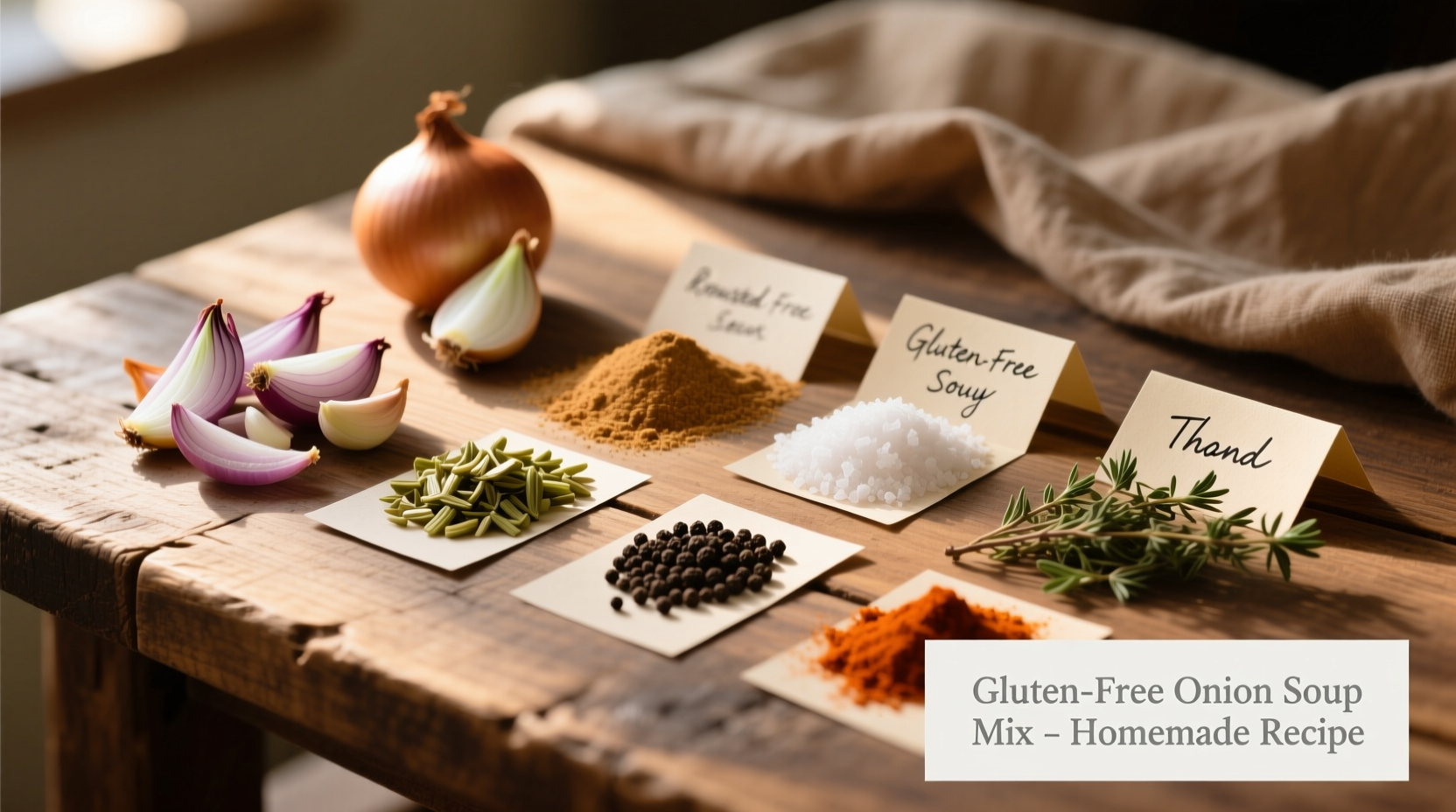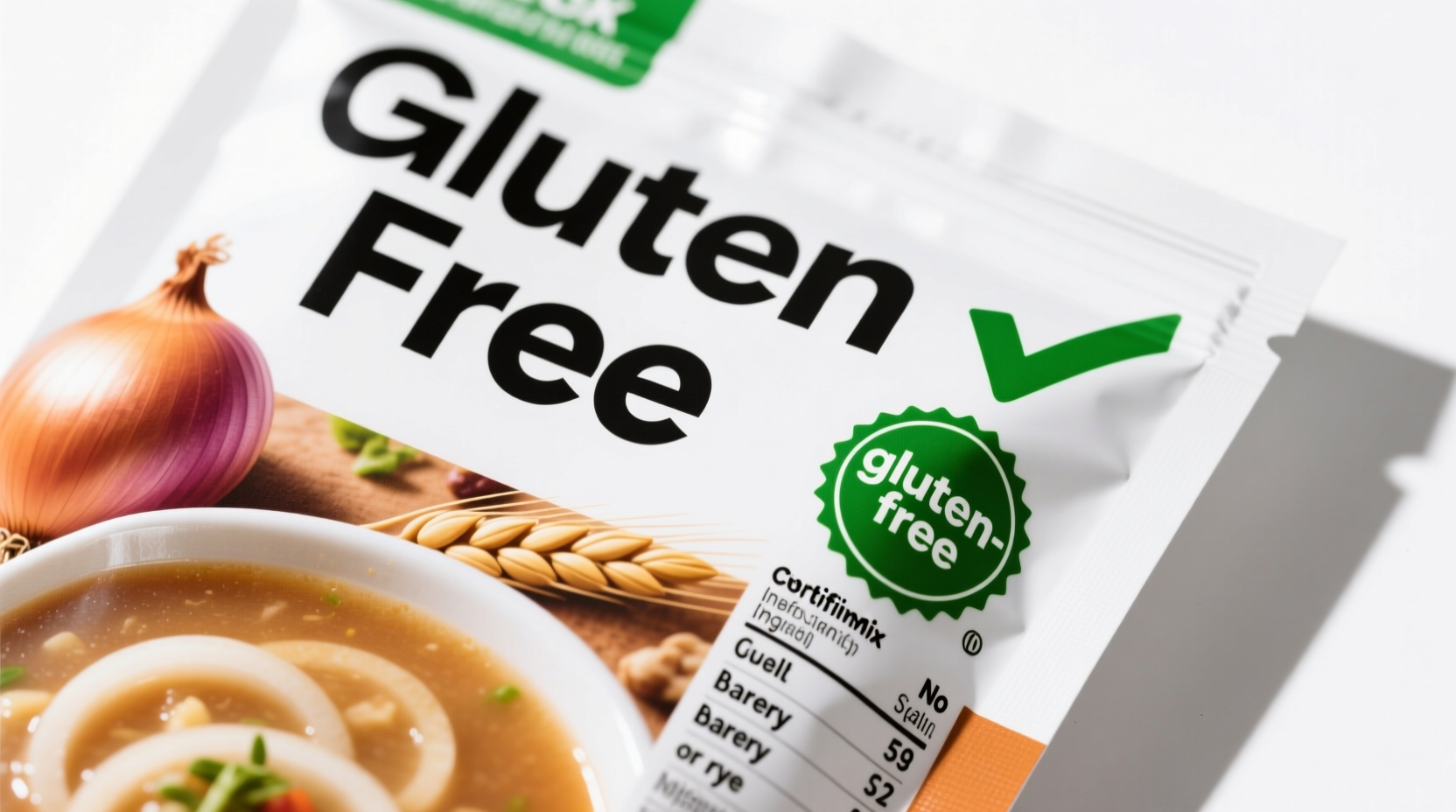Discovering whether your favorite onion soup mix fits your dietary needs is crucial for anyone managing celiac disease or gluten sensitivity. This guide cuts through the confusion with verified information to help you make safe choices without sacrificing flavor.
Why Most Onion Soup Mixes Contain Gluten
Traditional onion soup mix formulations typically include wheat-derived ingredients for texture and flavor enhancement. The primary gluten sources in these products include:
- Maltodextrin (sometimes derived from wheat)
- Modified food starch (often wheat-based)
- Flour as a thickening agent
- Flavor enhancers containing gluten
According to the FDA's gluten-free labeling regulations, products labeled "gluten-free" must contain less than 20 parts per million (ppm) of gluten—the lowest level that can be consistently detected in foods.
How to Verify Gluten-Free Status
Don't rely solely on front-of-package claims. Follow these verification steps:
- Check the ingredient list for wheat, barley, rye, or malt
- Look for certification logos from recognized organizations like GFCO (Gluten-Free Certification Organization)
- Research the manufacturer's practices regarding cross-contamination
- Contact customer service for specific product information
| Brand | Gluten-Free Status | Certification | Notes |
|---|---|---|---|
| Lipton Recipe Secrets | Contains gluten | None | Wheat-derived ingredients in most varieties |
| McCormick Gluten Free | Verified GF | GFCO | Specifically labeled gluten-free version available |
| Williams Sonoma | Verified GF | GFCO | Clearly labeled gluten-free option |
| Homemade version | Controllable | N/A | Complete ingredient control |
Understanding Labeling Evolution
Gluten-free labeling has significantly improved since the FDA's 2013 standardization:
- Pre-2013: Inconsistent labeling practices with no regulatory definition
- 2013: FDA established "gluten-free" definition (less than 20 ppm)
- 2014: Mandatory compliance for packaged foods
- Present: Third-party certifications provide additional verification beyond FDA requirements
The Celiac Disease Foundation reports that clear labeling has reduced accidental gluten exposure by 37% among diagnosed individuals since standardized regulations took effect.

Creating Your Own Gluten-Free Onion Soup Mix
When store-bought options don't meet your needs, this simple homemade version gives you complete control:
Basic Gluten-Free Onion Soup Mix Recipe
- 1 cup dried onion flakes
- 2 tablespoons beef or vegetable bouillon powder (gluten-free verified)
- 1 tablespoon cornstarch or arrowroot powder
- 1 teaspoon garlic powder
- 1 teaspoon onion powder
- 1/2 teaspoon black pepper
- 1/4 teaspoon thyme
- 1/4 teaspoon parsley
Mix all ingredients thoroughly and store in an airtight container for up to 6 months. This blend works perfectly for French onion soup, casseroles, and gravy recipes requiring onion soup mix.
Practical Cooking Considerations
When substituting gluten-free onion soup mix in recipes, keep these points in mind:
- Thickening power: Cornstarch-based mixes thicken differently than wheat-based versions
- Flavor development: Allow extra time for flavors to meld when using homemade versions
- Storage: Homemade mixes lack preservatives, so use within 6 months for best flavor
- Cross-contamination: Use dedicated utensils and storage containers if you have celiac disease
Professional chefs often recommend toasting the dried onion flakes in a dry skillet for 2-3 minutes before mixing to enhance the natural sweetness and depth of flavor—a technique that works particularly well with gluten-free versions.
When Gluten-Free Matters Most
For individuals with celiac disease, even small amounts of gluten can cause significant health issues. The CDC estimates that approximately 1 in 160 Americans has celiac disease, making accurate ingredient information essential.
Those with non-celiac gluten sensitivity may experience discomfort from gluten exposure but don't face the same long-term health risks. Understanding your specific needs helps determine how strictly you must verify gluten-free status.











 浙公网安备
33010002000092号
浙公网安备
33010002000092号 浙B2-20120091-4
浙B2-20120091-4